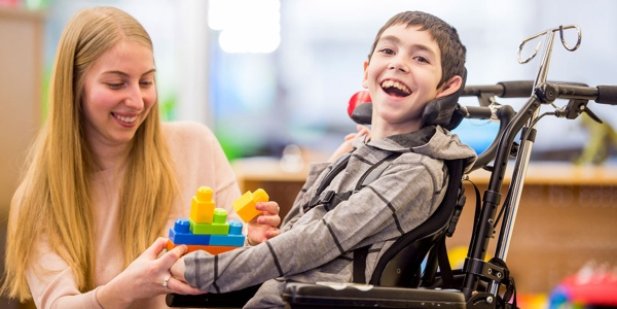Parenting a child with special needs comes with unique challenges, one of which is fostering their independence. However, it is essential to recognize that independence looks different for each individual, and the goal should be to empower children to become as self-reliant as possible within their abilities.
This post explores strategies that parents can employ to nurture independence in their child with special needs, promoting their growth, self-confidence, and overall well-being.
- Understanding and Acceptance
The first step in empowering a child with special needs is to gain a thorough understanding of their unique abilities, challenges, and potential. Parents should engage in open and honest communication with professionals, such as doctors, therapists, and educators, to comprehend their child's specific diagnosis, strengths, and areas for growth.
Acceptance of the child's condition is crucial, as it creates a foundation of love, support, and empathy that enables parents to make informed decisions regarding their child's development.
- Encouraging Self-Advocacy
Parents play a pivotal role in helping their child with special needs develop self-advocacy skills. This involves teaching them to express their needs, desires, and preferences in various settings.
Parents can start by actively involving their child in decision-making processes, allowing them to voice their opinions and make choices within their abilities. This practice enhances their self-esteem, independence, and the ability to advocate for themselves as they grow older.
- Establishing a Structured Routine
Creating a structured routine provides predictability and stability, which are essential for a child with special needs to feel secure and confident. Parents should work with their child to establish a daily routine that incorporates self-care tasks, household responsibilities, leisure activities, and educational or therapeutic interventions.
By following a consistent schedule, children can develop a sense of autonomy and take ownership of their responsibilities.
- Breaking Tasks into Manageable Steps
Complex tasks can often overwhelm children with special needs, making them hesitant to attempt them independently. Breaking tasks into smaller, more manageable steps helps children develop problem-solving skills and build confidence.
Parents can provide clear instructions, model each step, and gradually fade their support as the child gains proficiency. Celebrating each achievement, no matter how small, fosters a sense of accomplishment and encourages further independent efforts.
- Promoting Self-Help Skills
Self-help skills are crucial for children with special needs to become independent in daily activities. Parents can systematically teach skills such as dressing, grooming, feeding, and personal hygiene, tailoring the teaching approach to the child's unique learning style.
Visual aids, social stories, and the use of assistive technology can facilitate the learning process and provide additional support. Encouraging and reinforcing independent efforts, even if they are not perfect, nurtures self-confidence and fosters growth.
- Facilitating Social Interactions
Social skills are vital for children with special needs to navigate social environments and build meaningful relationships. Parents can support their child's social development by providing opportunities for interaction with peers, siblings, and community members. Encouraging participation in inclusive activities, clubs, or support groups can help the child develop social communication skills, empathy, and a sense of belonging.
- Collaboration with Professionals:
Collaboration between parents and professionals is crucial in fostering a child's independence. Regular communication with therapists, teachers, and medical practitioners ensures a holistic approach to the child's development.
Parents can seek guidance, strategies, and resources from these experts to reinforce skills taught at home, adapt learning materials, and access appropriate assistive technologies or accommodations to support the child's independence.
Conclusion
Empowering children with special needs to become independent is a journey that requires dedication, patience, and unwavering support from parents.
By understanding their child's abilities, encouraging self-advocacy, establishing routines, breaking tasks into manageable steps, promoting self-help skills, facilitating social interactions, and collaborating with professionals, parents can create an environment that nurtures independence.
Ultimately, the goal is to help each child reach their fullest potential, fostering their confidence, resilience, and overall well-being.























